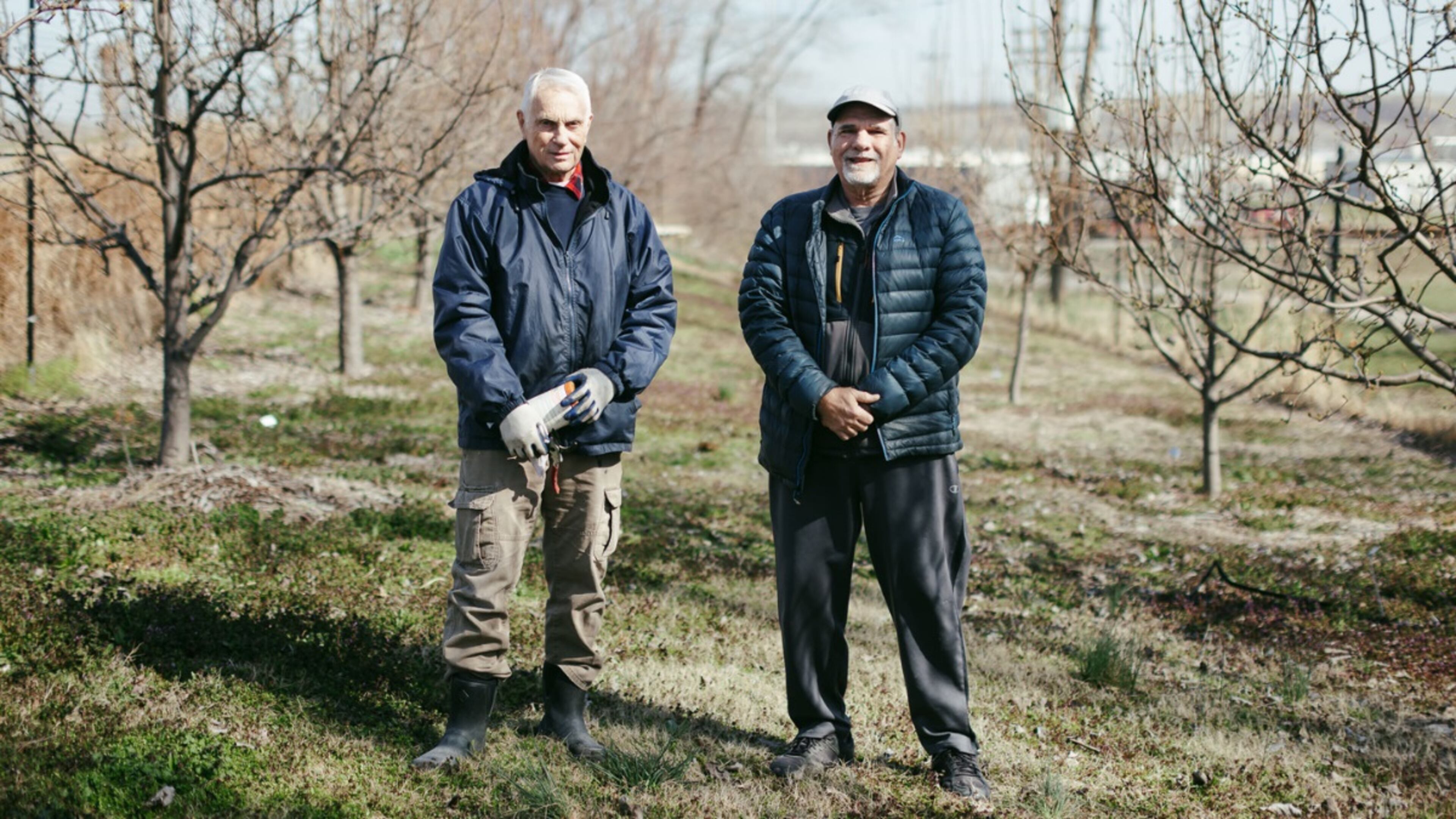Opinion: This nonprofit is providing fresh food to communities – one orchard at a time

THE ISSUE:
Food deserts are geographic areas where residents struggle to secure affordable and healthy foods — especially fresh fruits and vegetables. Disproportionately found in high-poverty areas, food deserts create extra, everyday hurdles that can make it harder for kids, families and communities to grow healthy and strong, the Annie E. Casey Foundation wrote.
ONE SOLUTION:
Yes, one person can make a difference. Dismayed by a vacant, trash-strewn lot, a retired firefighter in Kansas City, Kan., started a community garden. Much like the fruits and vegetables, the idea grew. Today, there are more than 300 orchards in 10 cities. The gardens provide fresh food; they teach children about nature; and they have cultivated a sense of community.
About the Solutions Journalism Network
This story comes from our partners at the Solutions Journalism Network, a nonprofit organization dedicated to rigorous reporting about social issues.
Across Kansas City – and the country – orchards in unlikely places now have budding fruit trees.
On a hilly terrain next to a massive railroad yard in Kansas City, Kan., 10 pear, six apple and two peach trees are thriving where piles of construction debris, toilets and tires used to sit.
A Kansas City nonprofit, The Giving Grove, began planting gardens and orchards back in 2013. Since then, its footprint has expanded to more than 330 orchards in 10 cities.
The gardens provide fresh food to the communities – and they have cultivated a network of community stewards.
“These individuals are very compassionate,” said Rob Reiman, CEO of Giving Grove Inc. “They often have lived in the neighborhood the longest and they have many memories of a vibrant community. In their heads, they know the potential. They want to do it for the neighborhood.”
The concept of the Giving Grove’s work is direct: Inspire and excite a neighborhood about growing food.
The idea came to Jim Jarsulic, a retired firefighter and longtime resident of the Turner neighborhood in Kansas City, Kan., when he looked at the lot filled with debris next to a doctor’s office. The doctor allowed Jarsulic to start a small garden at the top of the hill.
A year later Calvin Hoover, a retired technician for the Kansas City Board of Public Utilities, joined Jarsulic.
Soon, everything started to take off.
Every year, the pair has added something to the area, which now encompasses four acres. There are 4-by-12-foot raised garden beds tended by individuals, two large hoop houses that extend the growing season and a monarch butterfly way station. They even raise tilapia next to a hydroponic garden.
The Turner project also includes a farmers’ market and a free food stand at a nearby church. The doctor’s office is now being transformed into a community center.
“The kids really did take to it,” Jarsulic said. “It’s a neighborhood place. It is better to be in a garden than a place with used glass.”
Jursulic and Hoover have impressed Angela Markley, now a county commissioner.
“I thought the garden would be a great use of unused space, and a wonderful opportunity to build community,” Markley said. “It has been both. In addition to being a meeting place and passion project for the dedicated garden team members, the garden is a center for community activity, both formal and informal.”
Many young people in the area don’t have any exposure to gardening prior to visiting a Giving Grove, which helps provide the trees, supplies and training.
“It is connecting them to the earth and helping them understand how the science they learn at school is alive around them,” Markley said. “And it is helping pave the way for a greater understanding of the need to protect and preserve our resources.”
Reiman said part of the idea behind having care for the orchards – which could produce for decades – is that they can be transferred through a chain of stewards over time.
“Then you are creating a food system that is multigenerational,” Reiman said.
It didn’t take long to see the other benefits the orchards produced.
When residents spoke to Reiman, they “would share stories about individuals in the neighborhood who would not be able to speak the same language, but they would come into the orchard, and they would communicate,” he said.
As he said, “This is much, much bigger than food.”
Just about 10 miles east of where Jarsulic and Hoover work, youth are experiencing the orchards overseen by Toni Gatlin.
A resident of the Santa Fe neighborhood in Kansas City, Missouri, Gatlin oversees five orchards that are at or near schools. She is determined to make sure students understand the orchards and how the food is produced. Of course, they also have a chance to eat the goods.
Along with learning about healthier food choices, the orchards teach the children about nature.
Gatlin’s favorite time in the orchards might be when children are trying the trees’ fruit for the first time.
Dina Newman, director of the Center for Neighborhoods in the Department of Architecture, Urban Planning + Design at University of Missouri-Kansas City, said there are so many benefits.
“Green spaces – orchards, gardens, urban farms – help to improve the environment, help to reduce stress, and studies show it can reduce crime,” she said.
“The accessibility to affordable, healthy, fresh fruit and vegetables addresses food insecurity issues that so many communities are experiencing. For some, there is a disconnect between the land and the food system – many have forgotten or never knew how to grow their food.”
The opportunity for orchards, Reiman said, will always be there.
“There will always be the need to create access to healthy food for free to individuals who simply don’t get enough.”
Deb Skodack writes for the Kansas City Beacon, a nonprofit online news outlet in the Kansas City metropolitan area that focuses on public-interest journalism.
More Stories
The Latest


